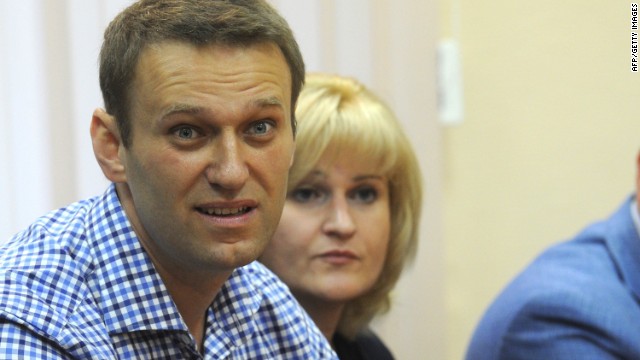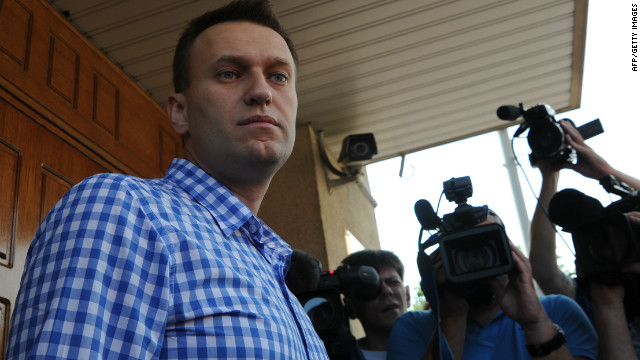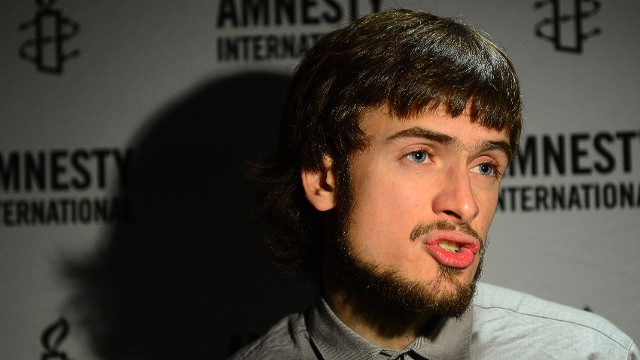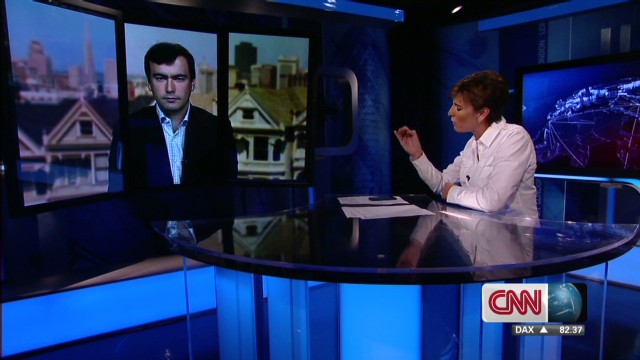Story highlights
- Opposition leader Alexei Navalny thanks his supporters as he is freed pending appeal
- He faces a 5-year sentence for misappropriating funds in a lumber deal
- The conviction prevents Navalny from running for mayor of Moscow
- Mikhail Gorbachev is among voices condemning his trial, conviction
Russian opposition leader Alexei Navalny emerged from detention Friday, vowing not to be manipulated like "a kitten or a puppy" by the prospect that he could run for mayor of Moscow while appealing a five-year prison sentence.
Navalny was released one day after a court in the city of Kirov found him guilty of misappropriating about $500,000 in a lumber deal when he was an adviser to the Kirov region's governor.
Navalny is one of Russian President Vladimir Putin's most outspoken critics. He denies wrongdoing but had predicted he would be convicted to prevent him from running for mayor of Moscow.
Speaking to reporters outside court, Navalny said he would return to Moscow to discuss his next steps with his staff, the state-run RIA Novosti news agency reported.
"Regarding my participation in the elections, I am not some kind of a kitten or a puppy to whom they first say it can't participate in the elections and then they say, 'let's release him for a while so he can participate in the elections,' " he said.
Once in Moscow, he will decide whether to boycott the election or continue his campaign, he said, according to the news agency.
"We'll discuss it with the staff and with the volunteers. For now, I will stay a candidate, I am not retreating."
In posts on his Twitter feed, Navalny thanked his supporters, saying their determination had helped bring about the release of himself and fellow defendant Pyotr Ofitserov.
"Thank you everyone who came to protest in Moscow and other cities in the country," he added.
He said the route to change was first to want something, and then to do two or three simple things to make it happen.
"If we want and start doing -- then we'll have fair elections. If we want and start doing -- a real fight with corruption will start," he tweeted.
"We are already wanting strongly and have been doing for a while. We gather money, we talk to people, we go to protests, we do what is called 'politics in which all are welcome to participate.' "
Navalny and Ofitserov were released under travel restrictions, the Kirov court's press service said, which mean they can't travel overseas. This is customary in Russia.
'A parody of a prosecution'
Navalny's conviction and sentencing Thursday prompted wide condemnation.
The European Union's top diplomat, Catherine Ashton, called the trial a sham. And former Soviet leader Mikhail Gorbachev issued a statement saying the case "unfortunately confirms that we do not have an independent judiciary."
Navalny has been a prominent organizer of street protests and has attacked corruption in Russian government.
Rachel Denber, deputy director of Human Rights Watch's Europe and Central Asia division, said she was not surprised by the guilty verdict but was shocked by the five-year prison sentence.
"Navalny's prosecution is meant to silence a leader and messenger," she said.
Amnesty International's Europe and Central Asia program director, John Dalhuisen, said, "This was a parody of a prosecution and a parody of a trial. The case was twice closed for lack of evidence of a crime, before being reopened on the personal instruction of Russia's top investigator."











